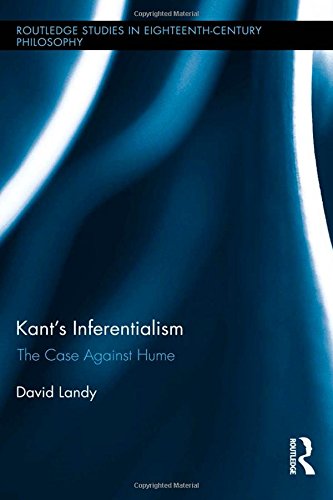

Most ebook files are in PDF format, so you can easily read them using various software such as Foxit Reader or directly on the Google Chrome browser.
Some ebook files are released by publishers in other formats such as .awz, .mobi, .epub, .fb2, etc. You may need to install specific software to read these formats on mobile/PC, such as Calibre.
Please read the tutorial at this link: https://ebookbell.com/faq
We offer FREE conversion to the popular formats you request; however, this may take some time. Therefore, right after payment, please email us, and we will try to provide the service as quickly as possible.
For some exceptional file formats or broken links (if any), please refrain from opening any disputes. Instead, email us first, and we will try to assist within a maximum of 6 hours.
EbookBell Team

4.3
58 reviewsKant’s Inferentialism draws on a wide range of sources to present a reading of Kant’s theory of mental representation as a direct response to the challenges issued by Hume in A Treatise of Human Nature. Kant rejects the conclusions that Hume draws on the grounds that these are predicated on Hume’s theory of mental representation, which Kant refutes by presenting objections to Hume’s treatment of representations of complex states of affairs and the nature of judgment. In its place, Kant combines an account of concepts as rules of inference with a detailed account of perception and of the self as the locus of conceptual norms to form a complete theory of human experience as an essentially rule-governed enterprise aimed at producing a representation of the world as a system of objects necessarily connected to one another via causal laws. This interpretation of the historical dialectic enriches our understanding of both Hume and Kant and brings to bear Kant’s insights into mental representation on contemporary debates in philosophy of mind. Kant’s version of inferentialism is both resistant to objections to contemporary accounts that cast these as forms of linguistic idealism, and serves as a remedy to misplaced Humean scientism about representation.